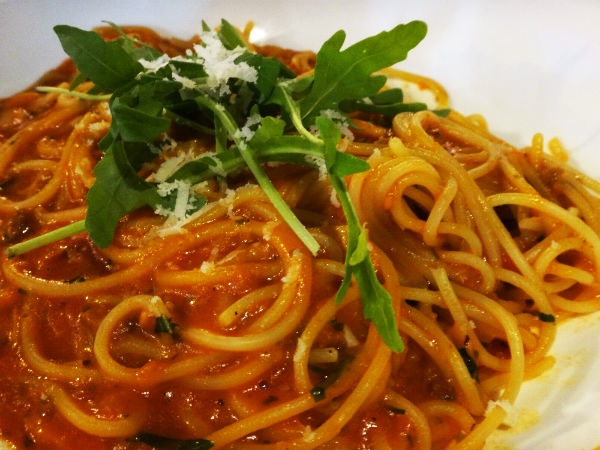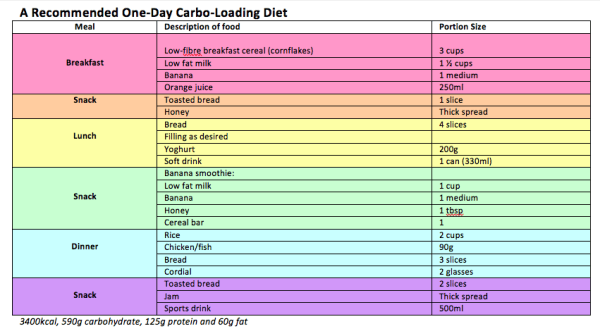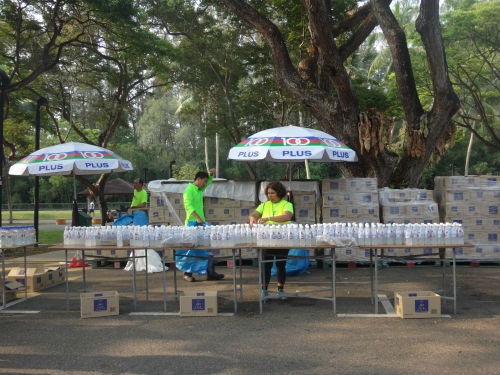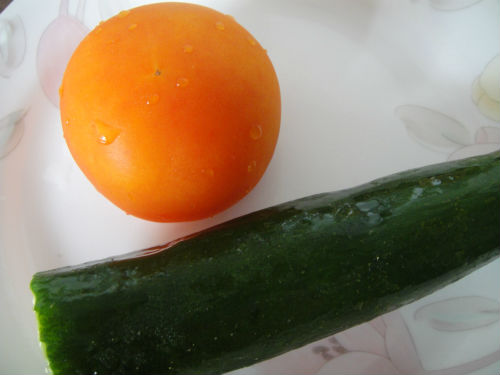Usually, you are recommened to eat whole grains but cut down on sugar and high GI carbs to maintain a healthy diet. How would this type of advice impact endurance runners, who sometimes need a quick fix of energy to boost performances?
Sugar and high GI carbs do have a place in a runner’s diet but they must be eaten in correct quantities and timing. High fiber foods such as cereal bars, wholemeal bread and fruit may increase the risk of gastrointestinal upset when consumed just before or during exercise. This is when sugar and high GI carbs come in handy to provide a boost of energy without risking stomach upsets because they digest quickly.
On the flip side, if you overeat these foods, you do run the risk of unnecessary weight gain. So see a sports dietitian to ensure you eat them correctly.
What are your comments on carbo-loading amongst runners prior to a race?
Carbohydrate loading can elevate muscle glycogen up to twice the concentration of the resting muscle, which is highly desirable. High carbohydrate intakes enhance the capacity of the muscle to undertake prolonged submaximal exercise such as endurance running. It is useful for running events longer than 90 minutes as that is usually when glycogen stores are activated to be utilised.
What is an example of a one-day carbo-loading diet for an endurance runner?
I’ll give an example of a high carbohydrate diet for a 70kg male of normal Body Mass Index – to be used one to three days before race day
What are the top three sources of carbohydrates that runners should have – before and after a race?
Isotonic drinks provide fluid and carbohydrates that are useful for pre, during and post runs.
Rice (brown or white) is an easily available and great source of carbohydrate and B vitamins. B vitamins are needed for generating energy from carbohydrate foods making them available to the body. It is great for before a run.
Low fat yoghurt with fruit provides carbohydrate and protein, which is perfect for after a race. The bonus is that it also contains calcium.
What is a good post-recovery drink, after a run?
Isotonic drinks such as 100plus, H-Two-0 and Gatorade are good choices. To be labelled as an isotonic drink though, it needs to have six to eight per cent of carbohydrate, potassium and sodium which is the concentration best absorbed by the stomach to replenish stores almost immediately.
How much water should a marathon runner be drinking before and during a race? Can he or she drink too much water?
Pre-race hydration
Most runners can handle 300-400ml of water/isotonic drink and that will be sufficient to be well hydrated for the run. This assumes though, that they have been drinking enough water the night before (or for a night race, drinking enough water during the day).
During the run
Ideally, drink three sips of fluid (water or isotonic drink) every 15 minutes (in reality, it is more like 30minutes). If the run is more than 60 minutes long, isotonic drinks are preferred as they contain glucose and electrolytes.
You can overload on water causing hyponatraemia but that is extremely rare. You would need to drink about 10 litres of water and not sweat it out.
In long distance running, we always encourage consumption of isotonic drinks because that prevents water overload and also benefits performance.
Any tips on healthy eating or drinking for runners?
- Do not restrict carbohydrate intake drastically even if you are trying to lose weight. Chances are that you will deprive your body unnecessarily of energy for your run.
- Fruits and vegetables are essential everyday. They assist in recovery and repair for muscles and tissues.
- Hydrate yourself adequately. Check the colour of your urine, it should be light yellow or colourless.
For more information, see Jaclyn’s website at: www.aptima-nsc.com
Page 1 | Page 2
Related Blog Posts
What Do Mok Ying Ren and his buddies eat?
I Eat Anything vs. Vegetarian Diet: Mok Ying Ren Vs. Russell Ericksen
Tasty but Healthy Sprouted Grain Bread By Sunshine Bakery
Page 1 | Page 2





Leave a Comment